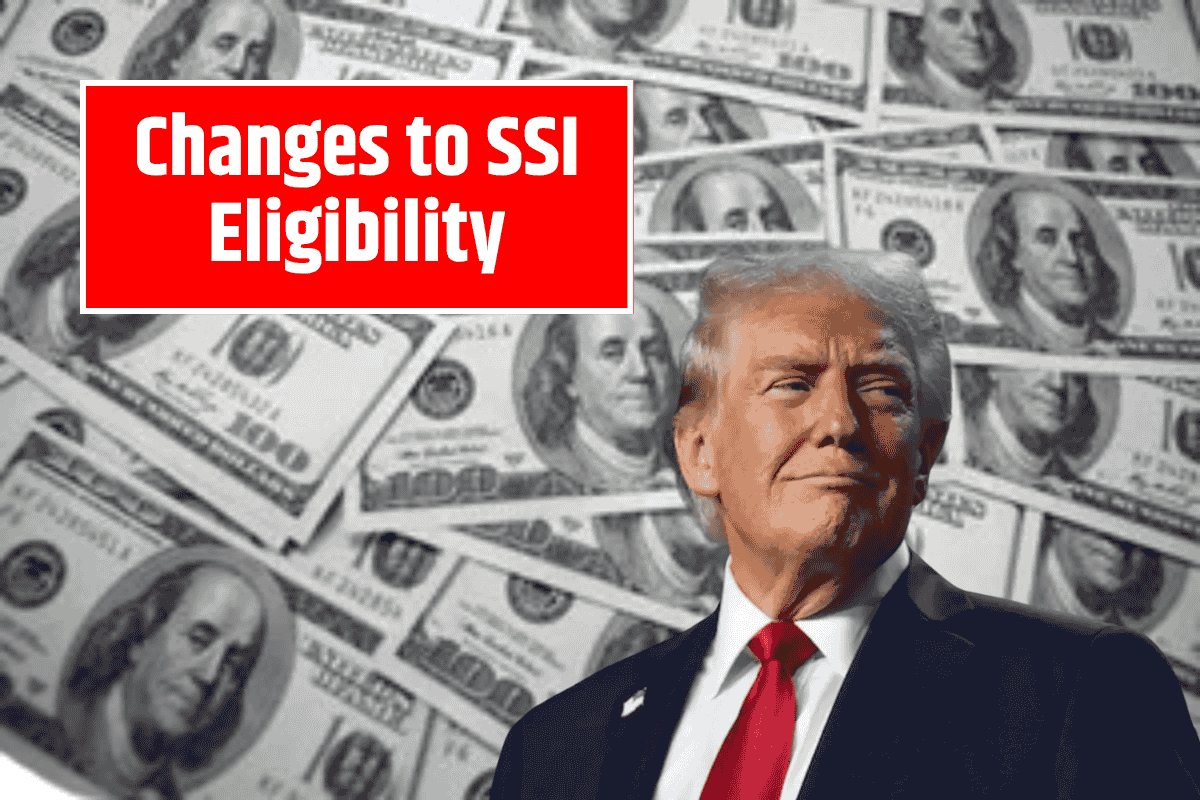Supplemental Security Income (SSI) continues to be a crucial support system for millions of Americans, particularly individuals with disabilities, older adults, and those with limited income. As we approach the end of 2025, recent changes to SSI eligibility rules and payment schedules have raised questions and confusion among beneficiaries.
This article provides a clear breakdown of the important updates, so you can navigate these changes with confidence and maximize your benefits.
Key Updates in SSI Eligibility
The Social Security Administration (SSA) has made several important updates to SSI eligibility rules, which affect food assistance, rental subsidies, and household definitions. These changes aim to make the SSI system more accessible and fair for all eligible Americans.
December Payment Date
An important change to note is that no SSI payment will be issued on December 31, 2025, as payments for the month of December will be advanced in November 2025. This shift happens due to the New Year’s Day federal holiday on January 1, 2026, and to avoid payment delays caused by weekends or holidays.
Payment Date Adjustment: Instead of receiving a December payment, SSI recipients will receive their December payment in November 2025, usually around the last business day of the month.
It’s important for beneficiaries to be aware of this shift in the schedule, so you can plan your budget accordingly. While the total number of payments for the year remains the same, this adjustment can sometimes cause confusion. Be proactive in tracking the payment changes and adjust your spending as needed.
Eligibility Adjustments: Rental Subsidies and Food Assistance
Some exciting new policy changes ensure that SSI recipients will no longer lose benefits due to receiving certain types of assistance. These adjustments reflect the SSA’s effort to better match real-world living conditions.
- Food Assistance Exclusion
In the past, SSI benefits could be reduced if you received food assistance from family or friends. However, starting in September 2024, food assistance from non-cash sources like family and friends will no longer affect your SSI payment.Example: If a family member helps you buy groceries, it will no longer reduce your SSI benefits under the new rule.
Why This Matters: This change ensures that recipients can receive full benefits without penalties for receiving informal support, making SSI more responsive to the needs of households relying on community support. - Rental Subsidy Adjustments
The SSA has updated its approach to rental assistance. For recipients living in housing with programs like Section 8 or other housing subsidies, SSI benefits will no longer be reduced as much based on these subsidies.Example: If part of your rent is paid through a subsidy, you may still receive your full SSI amount in most cases.
This is particularly helpful for people in high-cost housing markets where subsidies are common.Tip: Since rental assistance programs vary by state, it’s important to check with your local SSA office to see how these changes impact you. - Broader Household Definitions
The SSA has expanded its definition of a public assistance household. Now, if one member of a household is receiving public assistance such as SNAP benefits, other members in the household may also qualify for SSI.Impact: Larger families or multi-generational households can now more easily qualify for SSI.
For instance, a child in a household where a parent qualifies for SNAP may now also be eligible for SSI under the updated rule.Takeaway: This change increases access for more people and simplifies eligibility for families. If you think your household may qualify, this is a great opportunity to review your eligibility and apply for benefits if needed.
How to Navigate These Changes
The following steps can help you stay informed and take action to maximize your benefits:
- Review Your Benefits
Log in to your account on the SSA website to check for updated information about your benefits, payment dates, and any changes to your eligibility. The online portal allows you to make updates to your personal details, so be sure your contact information is up-to-date to avoid payment delays. - Consult with Experts
If you’re unsure how these changes apply to your situation, reach out for personalized advice:- Contact local SSA offices for one-on-one support.
- Consider speaking to community organizations like AARP or local disability rights groups, which often provide free assistance in understanding SSI benefits.
- Adjust Your Budget
Given the changes in payment dates, particularly the early December 2025 payment, it’s wise to plan your finances to ensure you’re prepared for any gaps or overlaps in payments. Create a flexible budget to account for these adjustments. - Apply for Additional Assistance
If your household income or situation has changed due to SSI updates, you may qualify for additional programs like SNAP, Medicaid, or utility assistance programs. Check with local resources to find out if you’re eligible for any other forms of support. - Educate Yourself on the Appeals Process
If your benefits are reduced or denied due to these changes, it’s crucial to understand how to appeal decisions. The SSA provides guidance for filing appeals, and many organizations offer legal assistance to help you navigate this process.
The recent SSI eligibility changes are designed to simplify the process and make benefits more accessible for millions of Americans. From food assistance exclusions to expanded household definitions and rental subsidy adjustments, these changes are intended to ensure that more people get the support they need.
By staying informed and proactive, you can effectively navigate these updates and make the most of your benefits.
